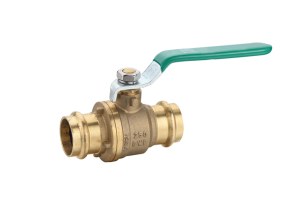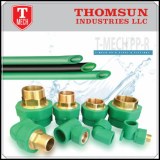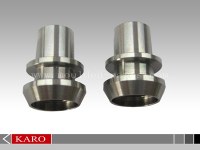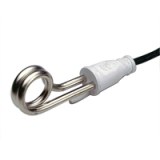The main features of the press ball valve are its compact structure, reliable sealing, simple structure and convenient maintenance. The sealing surface and the spherical surface are often in a closed state, which is not easy to be eroded by the medium. This OEM ball valve is easy to operate and maintain, and is suitable for water, solvents, acids and natural gas. The working medium of this ball valve is also suitable for the medium with harsh working conditions, such as oxygen, hydrogen peroxide, methane and ethylene, etc., which are widely used in various industries. Apart from brass ball valve, we also provide globe valve for sale and other kinds of valves.
Press Ball Valve Details:
Solid forging Lead Free DZR brass
Full port
Friendly leak detection feature
Blow-out proof stem
Easy installation without flame
Reliable design compatible with major press tools
High corrosion resistance DACROMET treated handle
Press Ball Valve FAQs
What is press ball valve?
Mainly used in hydraulic machinery equipment, hydraulic switches, natural gas, etc, a press ball valve is a common kind of bronze ball valve in which the opening and closing part (ball) is driven by the valve stem and rotates around the axis of the valve stem.
How much is a 2 inch press ball valve?
We are committed to providing customers with high-quality 2 press ball valve and the water ball valve price is very favorable. If you are interested in other kinds of brass ball valves such as brass ball valve with drain, pex ball valve and so on, please feel free to contact us.
What is a press ball valve used for?
Press fit ball valve is mainly used to cut off or connect the medium in the pipeline, and can also be used for fluid adjustment and control. Among them, the hard-sealed V-shaped gate valves for sale have a strong shear between the V-shaped core and the metal seat of the hard alloy. Shearing force is especially suitable for media containing fibers and tiny solid particles.
Bronze Ball Valve vs. Brass Ball Valve
The two most common materials used to make different types of ball valves are bronze and brass. This is due to the fact that both metals are quite ductile. They are all made artificially from natural metallurgical elements: brass is made primarily of copper and zinc, while the other is primarily made of copper and tin. Each metal has a unique set of benefits for the bronze pressure regulating valve.
One disadvantage of bronze is that it can only be manufactured through the casting or machining of cast ingots. Bronze's rough appearance—known as pores and shrinkage cavities—is a direct result of casting. On the plus side, bronze types of ball valves in plumbing are less expensive than brass ball valves. It is tougher, and more resistant to corrosion, particularly in corrosive substances similar to seawater.
Because different combinations of copper and zinc can produce brass with different properties, brass ball valve is more ductile and functional than bronze ball valve. Brass is also an excellent material for manufacturing because it can be cast, forged, hot extruded, or cold drawn. Its machinability is excellent, and its smooth surface contributes to cost savings.
Location : #543 Bingang Road, Shamen Bingang Ind. Zone, Yuhuan, Zhejiang Province, China, 317607 Yuhuan,
Contact : bronze carbo, 0576 87427230








